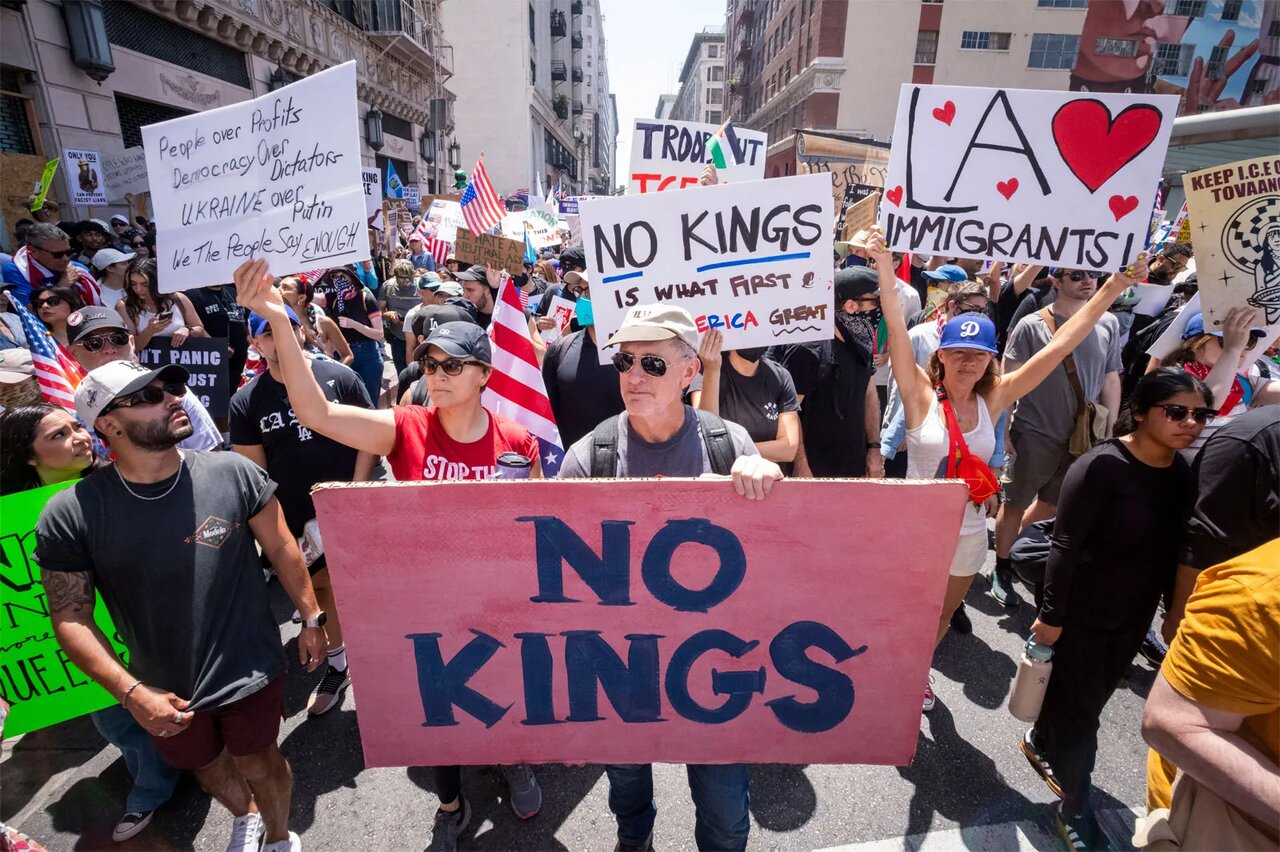Trump trying to be president of his fans: American sociologist
David Meyer says "No Kings" protests reflect growing fear of executive overreach

TEHRAN- In an exclusive interview with Tehran Times, David S. Meyer, a professor of sociology, political science, and urban planning at the University of California, Irvine, sheds light on the ongoing "No Kings" protests and the potential implications of Donald Trump's policies.
Meyer, an expert on social movements and political change, discusses the motivations behind the widespread protests, the growing dissatisfaction with the political establishment, and the possible directions U.S. domestic and foreign policy could take under a second Trump administration.
His insights provide a critical analysis of the current political climate, highlighting the evolving dynamics of protest movements and their capacity to influence national policy and global relations.
The following is the text of the interview:
How do the “No Kings” protests differ in organization and framing from previous anti-Trump or anti-executive power movements?
I'm not sure there's anything completely new in these protests against Trump that hasn't been prospected previously over the past 10 years or so. No Kings provided a big tent for activists with many different grievances. This time, many of them embraced patriotic symbols, like the flag, the pledge, and the Constitution.
What are the primary grievances driving mass mobilization against the Trump administration in his second term?
Like the first No Kings demonstration earlier this year, the second collection of demonstrations was not focused on just one identified abuse of power. Rather, organizers allowed local activists to focus on any one of the grievances they might have.
There's good reason for concern about democratic backsliding, as Trump has ignored lower court decisions.
How has the branding of the protests as “anti-America” by political opponents influenced protest tactics?
This branding of political opponents is familiar, as authorities try to discredit protesters. But Trump is very unpopular and several million people turned out to demonstrate all across the country. They looked like a cross-section of Americans and were overwhelmingly peaceful. Some carried American flags.
What unique dangers does the current U.S. context pose regarding executive overreach, and how do the “No Kings” protests illustrate or challenge theories of democratic backsliding?
Trump is the first president I know of who is explicitly unconcerned with taking care of Americans who might not vote for him. He is trying to be president for his fans, which is dangerous.
He is largely ignorant and unconcerned about Constitutional constraints and thus far, the Republican Party in Congress has been willing to let him do whatever he wants. There's good reason for concern about backsliding, as the president has ignored Congress and lower court decisions.
Do you think movements like “No Kings” have the potential to create structural change in executive power?
Big demonstrations matter, but not by themselves and not usually quickly. No Kings signaled that many Americans are opposed to key elements of the Trump presidency and willing to take actions. This encourages their allies and may chasten Trump's allies. All depends on how the opposition continues and which allies it is able to attract.
Attacking demonstrators, even rhetorically, risks overreach and backlash. The large numbers at the No Kings events underscores those risks.
Leave a Comment